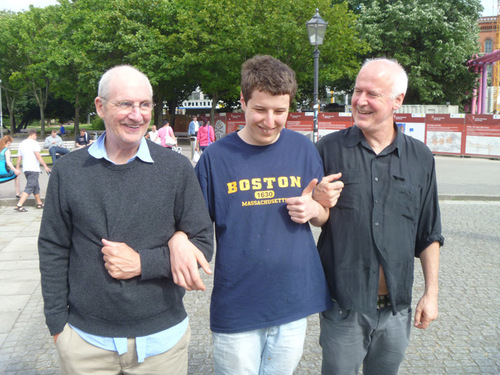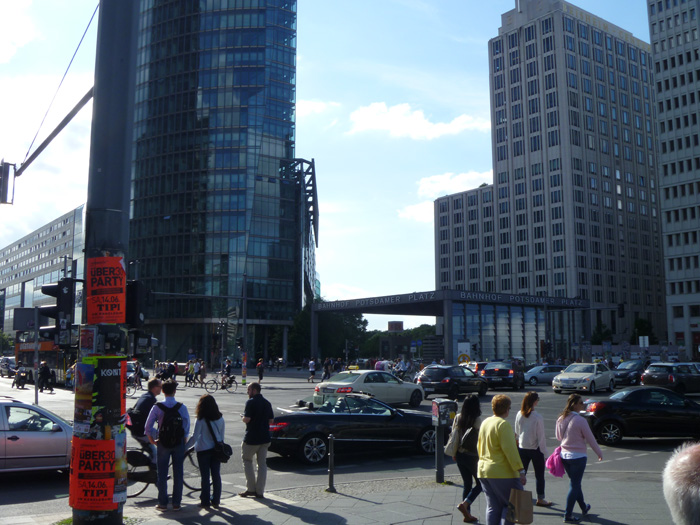Return to Where You've Never Even Been: Potsdamer Platz
November 3, 2014
By Mike Adams, Cohort ’13

In June of 2014, our Berlin Residency had the pleasure of hosting renowned British philosopher, Howard Caygill, and his son, Piero. We had met Howard the previous June for a truly illuminating series of lectures on Henri Bergson, while cohort ’13 was at Spannocchia in Tuscany. Uncannily, this year’s lectures carried over a theme from the end of Bergson’s life: his resistance to the Nazis as a Jew in occupied Paris. In Berlin, Howard enthralled us with lectures based on his new book, On Resistance: A Philosophy of Defiance, which is an exploration of how oppression operates, but more importantly how resistance remains possible, even in the face of overwhelming odds.
The final part of his lecture was on the history of Potsdamer Platz in Berlin, a place literally at the crossroads of history. After World War II, it was a wasteland, then in the no-man’s land between East and West before the fall of the Berlin Wall, as detailed in Howard’s 1997 article, “The Futures of Berlin’s Potsdamer Platz.” It was with these ideas in mind that we returned to a place that we’d never been to before, the historical Potsdamer Platz brought to life by Howard, a place so emblematic of modern history. We walked from our lecture room with Howard and Piero after Howard’s last lecture, from the historical Potsdamer Platz in the mind’s eye, to the real one about a half hour away. Howard had not seen it for many years, certainly not in its new, sleek guise.
Howard’s article charts the battle between city dwellers seeking an inviting, livable space, and corporate interests demanding a showplace for their new headquarters. In the end, the domination of corporate money won out, monolithic in purpose against the wavering of politicians who could not agree on a vision for the new Berlin. Howard was obviously dismayed, as we stood there in gleaming—but seemingly cold on that warm June day—Potsdamer Platz, on his return to this place transformed. The past, and one gets the sense also the future, is polished away. I think Howard’s lament is that this place could be anywhere, not the here that it should have been, something uniquely representative of Berlin’s rise from the ashes.

